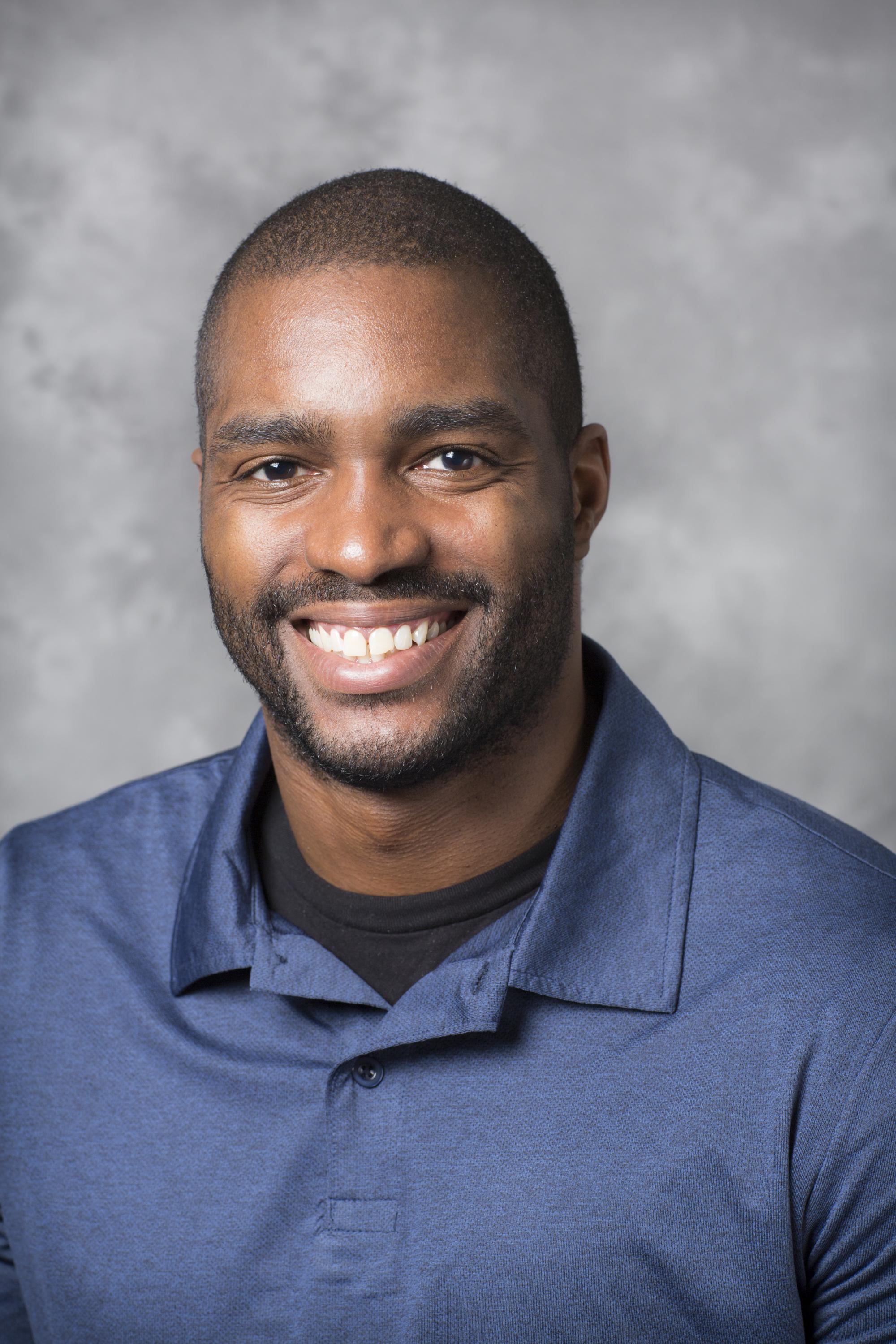Alonzo Whyte is just in his first year as a faculty member of the Neuroscience program at Georgia Tech, but his positive outlook and appreciation for diversity is already shining brightly. As an academic advisor, faculty instructor, and course curriculum designer, Whyte incorporates his philosophy of positivity and inclusion into multiple levels of the neuroscience curriculum.
“Without an intentional commitment to portraying people of color and their successes, it’s almost impossible for our students, regardless of race or gender, to pick up those messages unless they go looking for them,” Whyte says. “As instructional faculty, we are the primary source of information about science to the students. We should deliberately take moments to send positive messages about the contributions to science from black people.”
Many of Whyte’s own initiatives to increase diversity come from his experience as a student that noticed few people that looked like him. In fact, Whyte was not taught by a black instructor until graduate school when he took a summer course instructed by Kevin Jones, who at the time was a faculty member at Howard University and is currently a faculty member at the University of Michigan.
“That was the first time that I saw someone that looked like me and that felt I could be in the future,” Whyte says.
And it wasn’t just with his faculty that Whyte noticed a lack of representation for people of color. The first time he heard about Ernest Everett Just, a black science credited for great contributions to marine biology, was four years into his PhD.
Whyte hopes that his students are exposed to more diversity than he was. In the classroom, this means that includes images and works of scientists from underrepresented backgrounds throughout his courses. In academic advising, he strives to ensure that all of his students are guided to the career and educational opportunities available to them. In curriculum development, he is working to form partnerships with other metro Atlanta institutions so that people from underrepresented backgrounds can earn chances to experience neuroscience research at Georgia Tech.
“Partnerships with local Atlanta students could really be beneficial to making science more global and reducing the barriers to getting research experience,” says Whyte.
Whyte also believes that Black History Month is particularly important for highlighting the underrepresented stories of black communities and black scientists, leaders, and mentors.
“It’s easy for that voice to get swept aside, if there’s not a concerted effort to keep making sure that it’s heard,” says Whyte.
Related Links:
College of Sciences Welcomes Seven Faculty Members
More Black History Month Features:
Celebrating Black History Month: How to Promote Diversity Daily with Lewis Wheaton
Celebrating Black History Month: The Importance of Representation with Crystal Bell
Black History Month: "6Ps" Relevant to Academic and Career Success
By Grace Pietkiewicz, First-Year Student, School of Literature, Media, and Communication
For More Information Contact
Grace Pietkiewicz
Communications Assistant
College of Sciences
katiegracepz@gatech.edu



